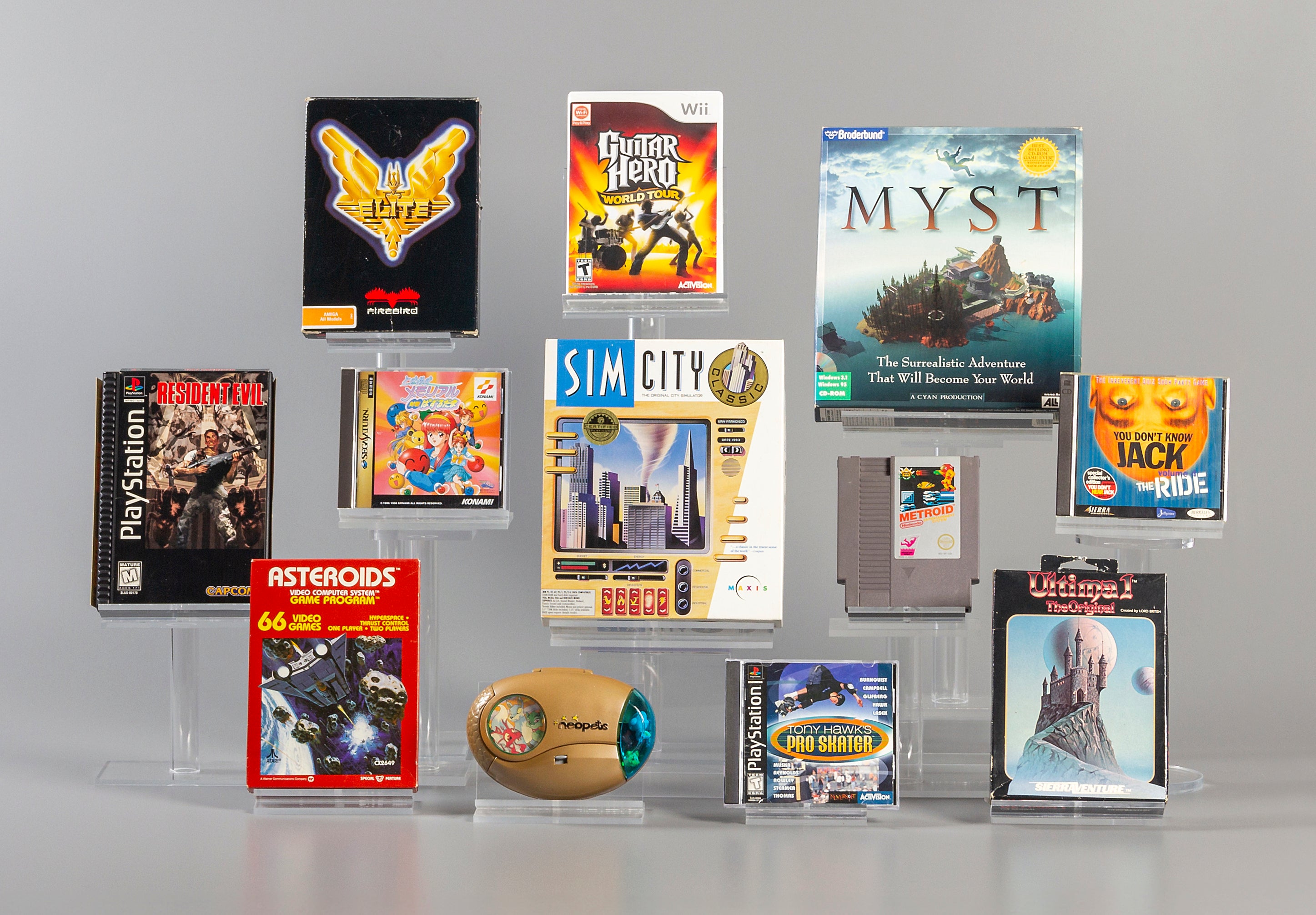From Asteroids to Guitar Hero, World Video Game Hall of Fame finalists draw from 4 decades
The 12 finalists for the World Video Game Hall of Fame this year represent four decades of play

Your support helps us to tell the story
From reproductive rights to climate change to Big Tech, The Independent is on the ground when the story is developing. Whether it's investigating the financials of Elon Musk's pro-Trump PAC or producing our latest documentary, 'The A Word', which shines a light on the American women fighting for reproductive rights, we know how important it is to parse out the facts from the messaging.
At such a critical moment in US history, we need reporters on the ground. Your donation allows us to keep sending journalists to speak to both sides of the story.
The Independent is trusted by Americans across the entire political spectrum. And unlike many other quality news outlets, we choose not to lock Americans out of our reporting and analysis with paywalls. We believe quality journalism should be available to everyone, paid for by those who can afford it.
Your support makes all the difference.The 12 finalists for the World Video Game Hall of Fame this year draw from four decades of gaming, from Atari Asteroids, played on coin-fed consoles in arcades, to Guitar Hero, for living-room rockers who compete on a plastic guitar.
Asteroids, which debuted in 1979 and Guitar Hero, which arrived in 2005, are nominated alongside 1980s launches Elite, Metroid, SimCity and Ultima, and from the 1990s: Myst, Neopets, Resident Evil, Tokimeki Memorial, Tony Hawk’s Pro Skater, and You Don’t Know Jack.
Fans are invited to vote online until March 21.
The Hall of Fame recognizes games for their longevity, geographic reach and influence on video game design and pop culture.
There is no shortage of contenders, according to Jon-Paul Dyson, director of International Center for the History of Electronic Games at The Strong Museum in Rochester, where the Hall of Fame is located. Thousands of nominations come in each year for electronic games of all types — arcade, console, computer, handheld, and mobile.
“Asteroids is an icon of the late 70s arcade. Myst showed the potential of CD-ROM technology in the 90s. Neopets became a staple of browser-based, free games as we entered the 2000s. And Guitar Hero, which is less than 20 years old, has already proven its staying power,” Dyson said in a news release revealing the finalists.
The three games that receive the most public votes will form a “Player’s Choice” ballot, to be counted with other ballots submitted by members of a committee of journalists and scholars with video game expertise. The top vote getters will be inducted May 9.
More about the finalists, according to The Strong:
— Asteroids sold more than 70,000 arcade units, becoming Atari’s bestselling coin-operated game. A home version became available on the Atari 2600.
— Elite, developed in Great Britain, pioneered innovative 3D graphics and the idea of open-world games by allowing players to control ships that roamed the galaxy.
— Guitar Hero, with its licensed music and social gameplay, has sold more than 25 million units, earning more than $2 billion. It was launched by Harmonix and acquired by Activision.
— Nintendo’s Metroid with its protagonist, Samus, gave the gaming industry its first playable human female character in mainstream video games. The franchise has sold more than 20 million units worldwide.
— Myst, released by Broderbund, became the best-selling computer game in the 1990s, selling more than 6 million copies. Early CD-ROM technology offered high storage capacity but slow loading times that fit the slow-paced, contemplative style of the game.
— The browser-based, free-to-play Neopets offered a social component that allowed players to chat with each other and form guilds. With 25 million active users at its 2005 peak, it served as a testing ground for cyber safety mechanisms and immersive advertising.
— Resident Evil, known as Biohazard in Japan, was the first game to popularize the “survival horror” genre. Created by game director Shinji Mikami and released by Capcom, Resident Evil inspired a franchise of films that have grossed more than $1.2 billion.
— SimCity, released by Maxis, helped expand the audience for video games by offering an urban design simulator that appealed to both children and adults.
— Konami’s Tokimeki Memorial elevated the dating simulator genre, offering a cohesive narrative, colorful graphics and engaging gameplay.
— Tony Hawk’s Pro Skater, launched by Neversoft/Activision in 1999, led to sequels that have generated about $1.4 billion in sales. The real-life skateboarder Hawk said the game “simultaneously ignited my career and overshadowed it.”
— Ultima, designed by Richard Garriott, is credited with helping to define and inspire the computer role-playing genre.
— You Don’t Know Jack reimagined the television game show for the home video game market. Streaming versions of the multiplayer game saw a boost during COVID-19 lockdowns.